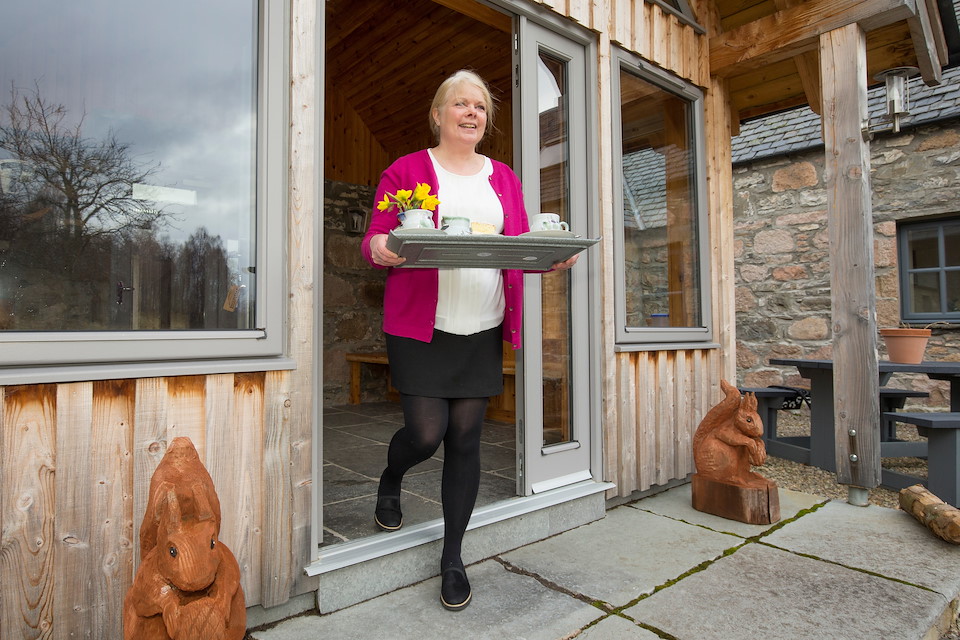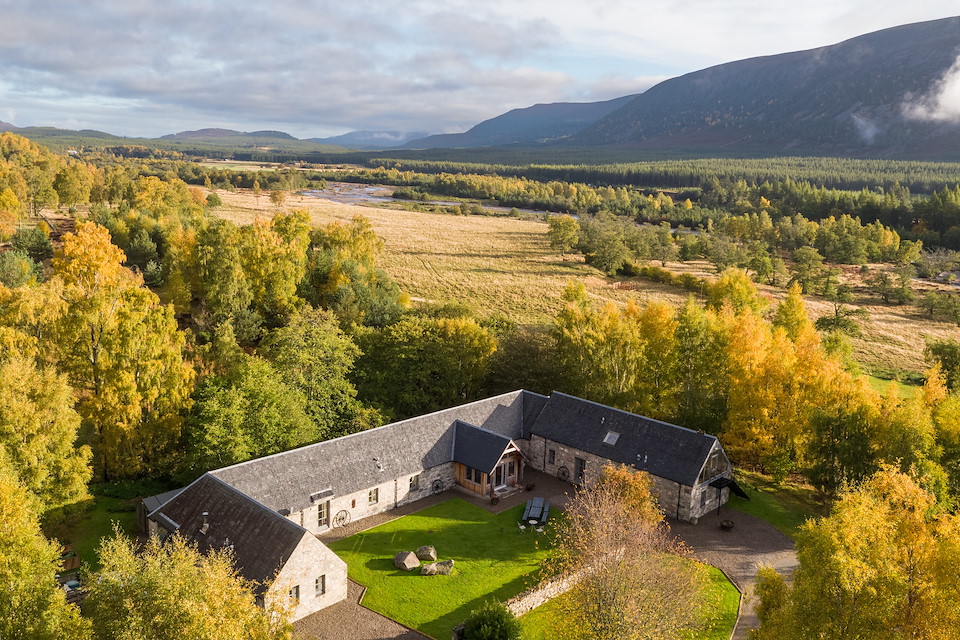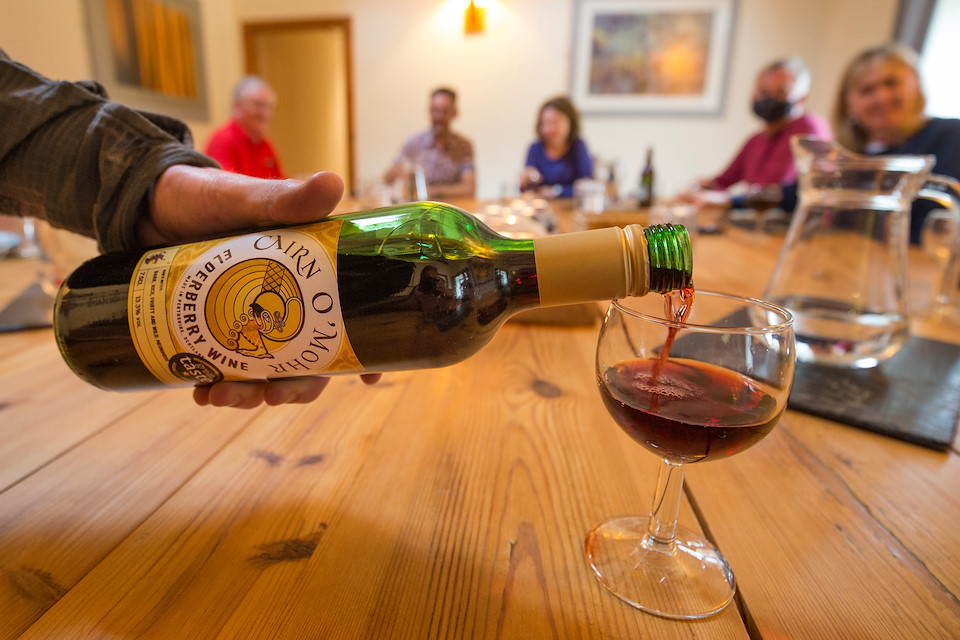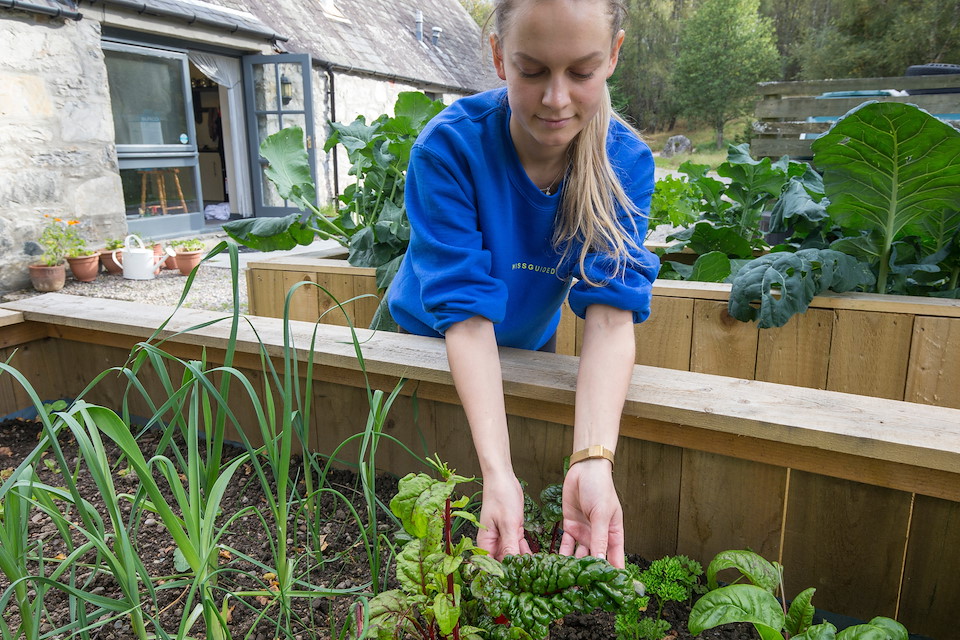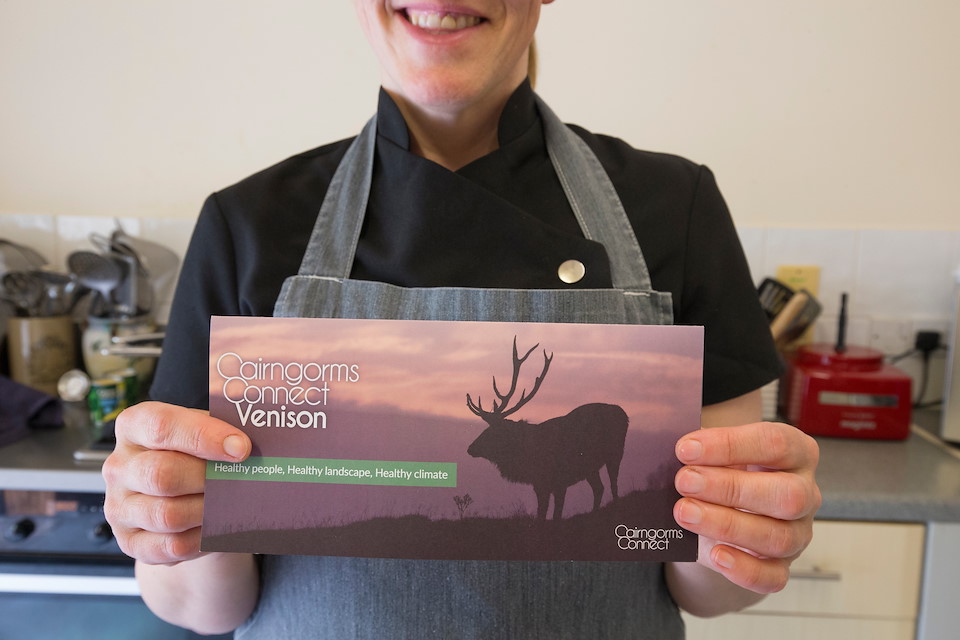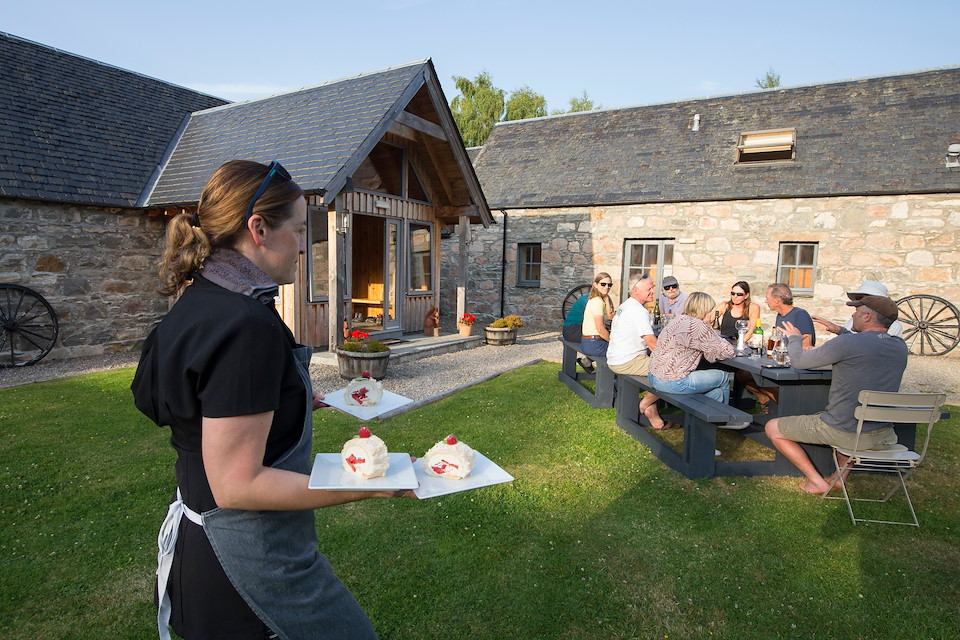Journey To The Wild!
Across much of Scotland, young forests are on the march, river systems are being transformed and wild animals are being reintroduced to wander unimpeded across habitats increasingly shaped by natural processes. We may not be able to show people wolves, but we can show them a landscape of hope.
The distant black dot on the forest edge weaves its way in and out of the trees. Barely discernible in the twilight, the leading animal is followed by a line of mottled ghostly forms, all clearly purposeful even from a distance. The pack leaves the woodland and breaks into a canter across the sage brush: six, then ten, then twelve wolves, all fixated on an unknown mission. They reach a crest, pause for a few seconds to sniff the air, and then – as quickly as they appeared – melt away into the landscape like apparitions.
Since that heart-pounding, eye-opening, penny-dropping encounter, I’ve been an advocate for rewilding.
The sight is electrifying in itself – my first wild wolves – but the experience is brought to life by the passionate commentary of a wolf researcher standing yards away with a local school group, each child enthralled by the scientist’s knowledge of wolves and their role in this landscape. I realise that she isn’t lecturing the children about an individual species, but expertly communicating a complex natural mechanism, made up of myriad components, of which the wolf is just one in this vast and spectacular wild place.
This encounter in Yellowstone National Park happened more than 25 years ago and, since that heart-pounding, eye-opening, penny-dropping encounter, I’ve been an advocate for rewilding.
Scotland has no wolves. In fact, Scotland has no large carnivores. Despite its majestic landscapes, it has become one of the most nature-depleted countries in the world, its glens, rivers and mountains having endured centuries of ecological decline through incessant burning, felling, draining and overgrazing. We’ve come to accept this empty, diminished, muted scenery as normal.
It’s time to change this story.
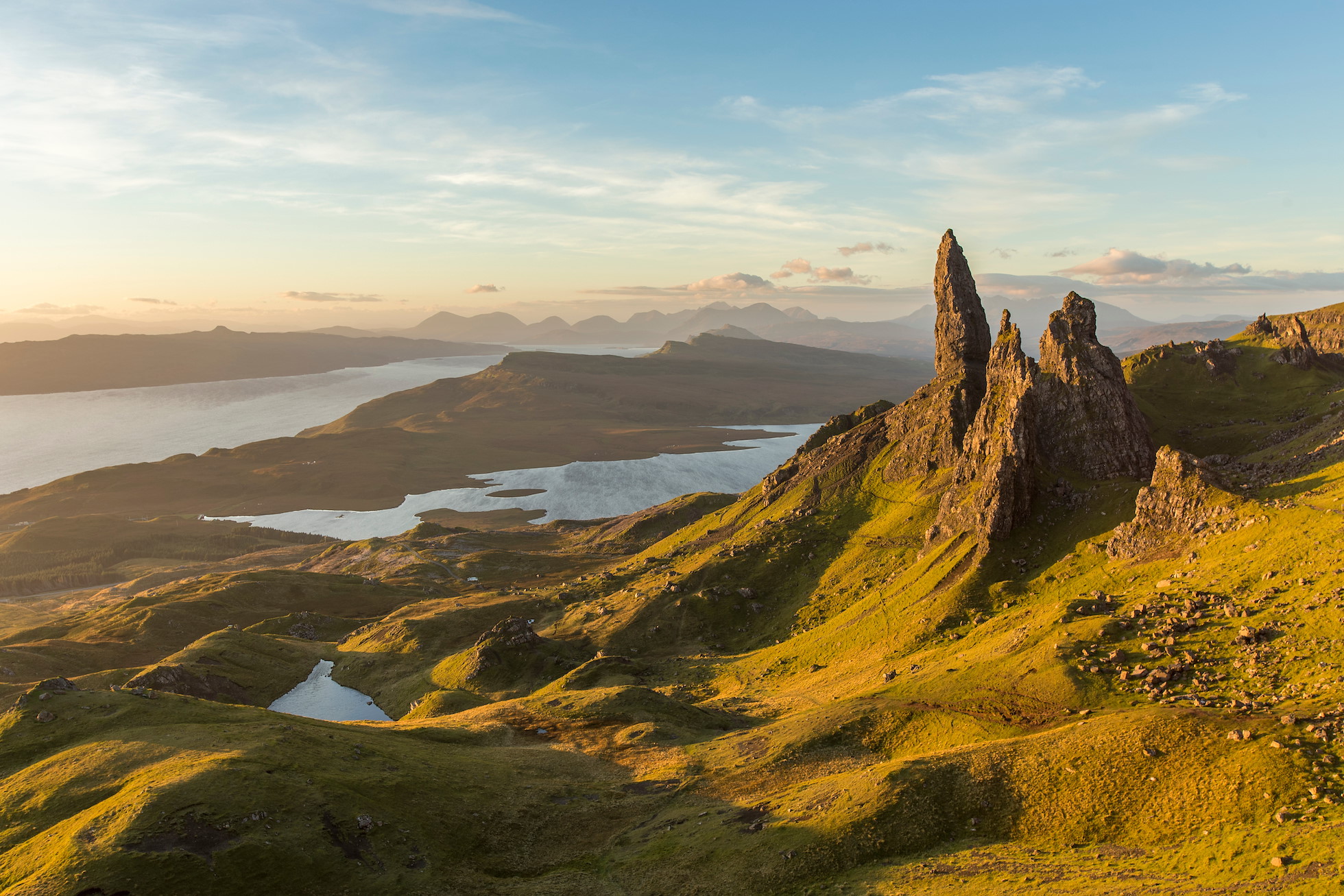
The Old Man of Storr on the Isle of Skye is the classic cover shot of Scotland – geologically spectacular but like so many emblematic Scottish landmarks, the Old Man is surrounded by an ecologically depleted landscape.
We could have vast forests teeming with life. Vibrant wetlands shaped by beavers and echoing with the bugling of cranes. Rivers brimming with fish and oceans full of whales. A much greater abundance and diversity of life. We could have wolves! While we have to recognise what we have lost, it’s crucial that we also imagine what could return.
We can’t show people wolves, but we can show them a landscape of hope.
I’m Executive Director of SCOTLAND: The Big Picture (SBP), a rewilding charity working to restore healthy, functioning and complete ecosystems across the country. We can’t show people wolves in Scotland, but we can show them a landscape of hope.
In a growing number of rewilding projects across Scotland, young forests are on the march, river systems are being transformed, and wetlands and peatlands are regenerating. Wild animals, such as beavers and golden eagles, are being reintroduced to wander unimpeded across a landscape increasingly shaped and governed by natural processes.



Across many parts of Scotland, landscapes are regenerating and wildlife is making a comeback.
From our base at the heart of the Cairngorms National Park, we run a programme of Rewilding Journeys – a carefully crafted blend of learning and inspiration – to show groups of like-minded travellers what rewilding looks like in a Scottish context, how it works and the benefits it delivers. In the company of expert guides, our guests discover pioneering rewilding projects that are fighting back for nature, and meet the inspiring people behind them. Along the way, we take time to breathe in the air, listen to the silence and seek out enriching encounters with wild animals.
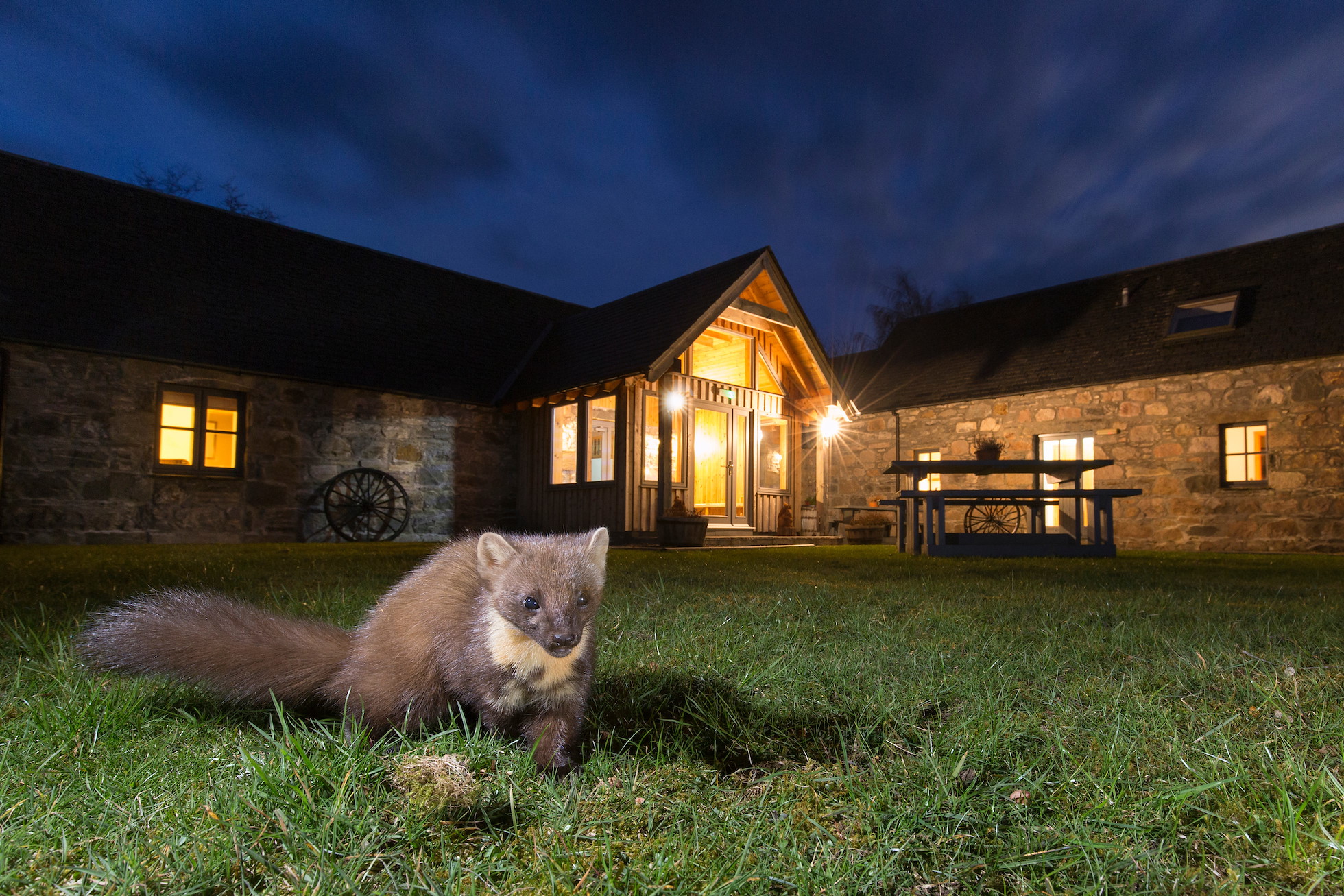
Badgers and pine martens are regular nocturnal visitors to our base.
A growing body of compelling evidence tells us that immersing ourselves in wild nature is hugely beneficial to our health and wellbeing. I’ve known this myself, ever since my enthralling wolf encounter all those years ago. More fundamentally, particularly in what can seem like an ocean of environmental despair, spending time in rewilded landscapes offers hope: that we might restore lost or degraded ecosystems; that wildlife can come back; that we can rekindle the spark of wonder that wildness inspires.
Our Rewilding Journeys allow us to make the economic case for a nature-rich landscape.
It may seem odd that a rewilding charity also has a foot in the nature-based travel business, but we recognise that ecological recovery is only possible – or it’s certainly much easier – when it benefits local communities. One of our core focus areas is therefore developing sustainable business models to establish rewilding as a legitimate and economically viable land-use choice.
Our Rewilding Journeys are a small but symbolic example of how revenues from nature-based travel can create jobs and breathe new life into rural communities. We train and employ local staff and are proud to source almost 90% of our food and supplies from within Scotland, and a growing percentage from within the Cairngorms. Contributing to a sustainable local economy in this way not only makes good business sense, but allows us to make the economic case for a nature-rich landscape.
We hope our groups take away with them a renewed sense of possibility and potential.
Watching and listening to our guides in action, I’m often reminded of my own epiphany back in Yellowstone, when I dared to dream of what Scotland could look like. Sometimes it takes a fresh perspective to peel away the filters that limit our imaginations. I see this happening when our guests gaze out over the huge forests that are finding their way back to the Cairngorms for the first time in centuries, or perhaps catch a glimpse of a recently reintroduced beaver crossing a loch. In those moments, brought to life by skilled interpretation, they see what is possible, even in our simplified, sanitised islands, where wild nature is so often tamed and suppressed.
The regenerating forests and lochs of Glenfeshie, serve as an inspiring reminder of what is possible across much of Scotland.
It is this renewed sense of possibility and potential that we hope our groups take away with them. We hope that they hold it close and use it to inform, inspire and influence others. Only by encouraging wider society to recognise our nature-depleted land and seas, and by encouraging a fresh, more ambitious approach to ecological recovery, will we build the momentum necessary to address the challenges of climate breakdown and global nature loss.
Peter Cairns has spent more than 30 years as an environmental communicator, rewilding advocate and nature tourism operator. Today, he heads up Scottish rewilding charity, SCOTLAND: The Big Picture.
Join SCOTLAND: The Big Picture for a Rewilding Journey in the Cairngorms.

